Black Sunday is Tola Abraham’s well-written debut that follows twin sisters Bibike and Ariyike and their younger brothers, Peter and Andrew. The sociopolitical upheaval in Nigeria is a minimal backdrop to the plot as changes in the country is a catalyst for their mother losing her comfortable job in a government parastatal. Their father is largely unemployed but it matters little as their mother’s job is good enough to ensure that they all live a decent enough middle class life. Their dad is more available for school runs and other home-bound responsibilities. Their entire family life is turned upside down when their mother is sacked. This sack is the beginning of the pain, abuse, abandonment and poverty that envelopes the whole book.
The first thing that struck me about Black Sunday is how excellent Tola Abraham’s prose is. For a debut novel, the writing is accomplished. Also, she creates a very realistic portrait of family experiences in Lagos, Nigeria – both for the middle-class life that the twins and their family lived before their mother lost her job and the life of poverty that they fell into thereafter. It takes a special skill to write about poverty for a story set in a developing country without turning it into poverty porn. Tola Abraham has that skill.
The thing about poverty is that it stripes you of options. The thing about economic and political decisions by politicians is that it has real-life consequences. Our politicians seem oblivious of this fact. The solitary political decision that led to Bibike’s mother losing her job is what pushed her family into poverty, destroyed their family bond and striped all members of the family of options to the deplorable point where being abuse became enticing. A lack of options makes some victims become vulnerable to abuse. There is a lot of sex in Black Sunday but sadly most of it is non-consensual. Power dynamics distort even the few that seem consensual. Females are all on the receiving end of this abuse of power. The younger brothers, Peter and Andrew, are distant beneficiaries of the abuse as it provides a means for their sisters to take care of them. However, one is left to wonder what the plight of the boys would have been if they had no elder sisters whose desirability were being exploited. it is a bleak prospect all round.
As if the abuse and poverty is not a bleak enough combo, abandonment makes it worse. The cruel reality of teenagers and pre-teens waking up one morning and finding themselves parentless is very traumatic. It is one thing for a father or mother to abandon their kids but for both parents to up and leave their children in the face of difficulties is something almost unimaginable. The scene where Peter seats in his grandma’s veranda looking far into the horizon until nightfall while anticipating the return of his runaway father is heartbreaking. Broken people are always vulnerable and nowhere is this more visible than in the exploitation of Arikiye by the hypocritical brand of pentecostalism displayed in the story.
Black Sunday has a lot of good going for it but lets itself down on some critical fronts. The book is written in a form where each of the four siblings is the protagonist in each chapter and tells their story in the first-person narrative. This is a bit problematic as it makes the book feel episodic and unwholesome as a novel. As you approach the closing chapters. you realise that a lot of mini-narratives had been nothing but distractions and the very introspective chapters of Peter and Andrew that held so much promise had been abandoned without closure. The ending seemed rushed and dull. In all, what started as a very explosive novel petered out in the end. Also, one is left wondering if the alternating POV of 4 characters was the best structure for the plot. Despite these misgivings, Black Sunday is sustained by the excellent writing of Tola Abraham – not just excellent prose but very keen observation of middle-class Lagos living and universal ills that resonate well. For these reasons, it is well recommended.
3.6/5
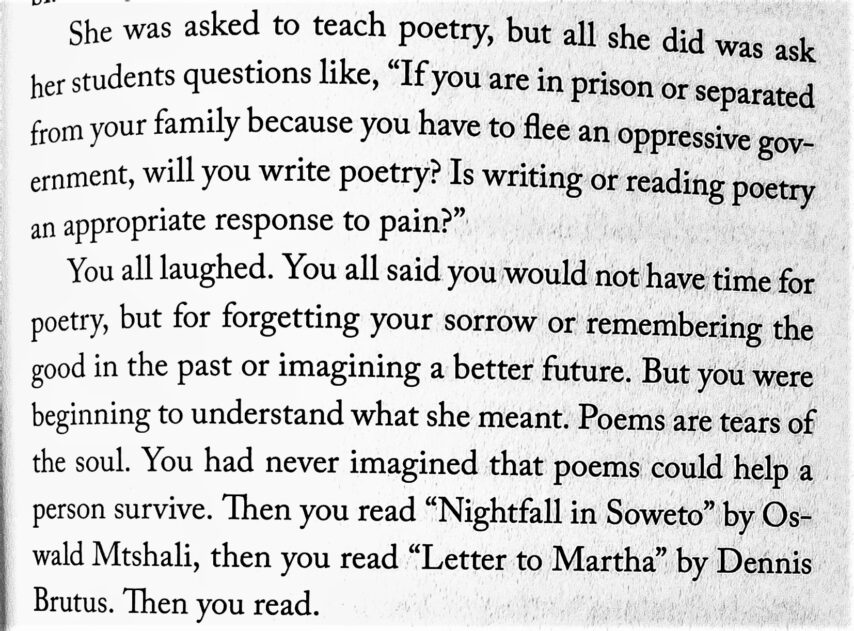
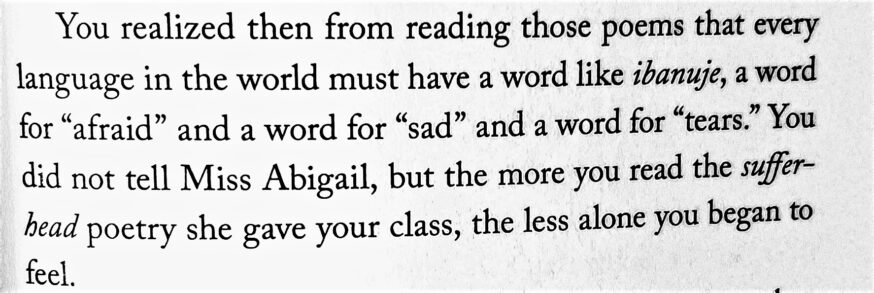
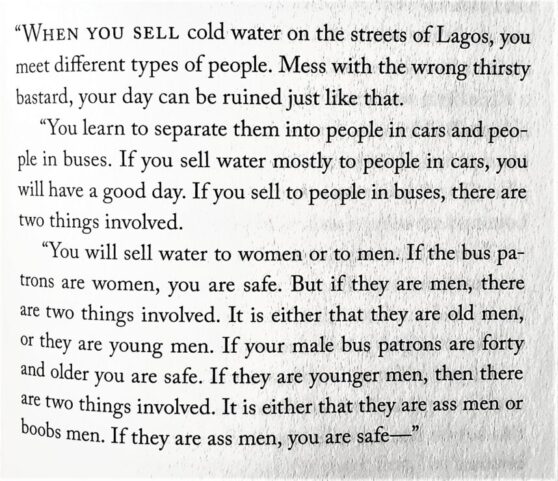
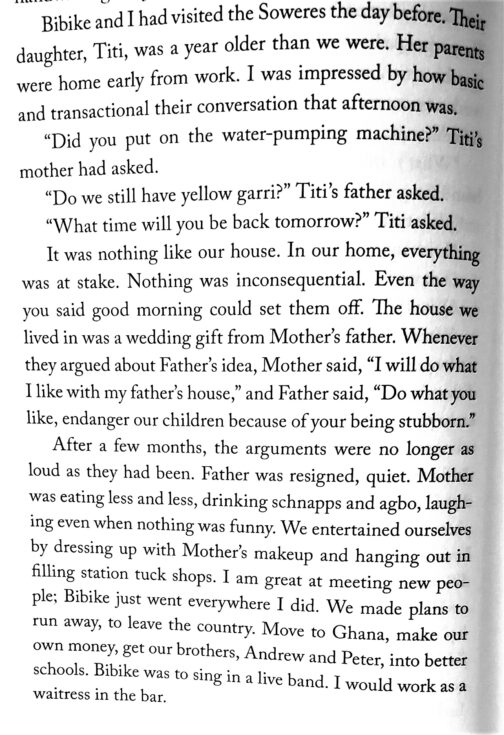
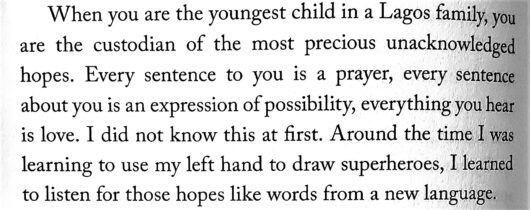
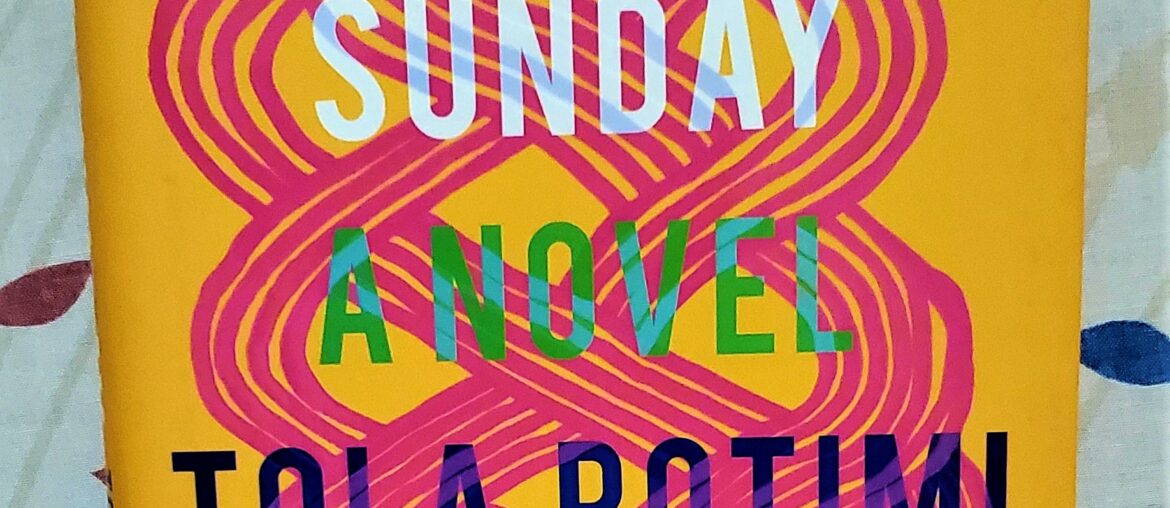
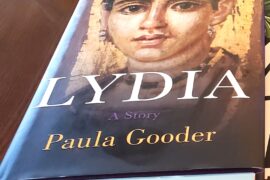
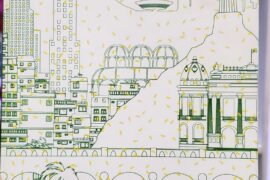
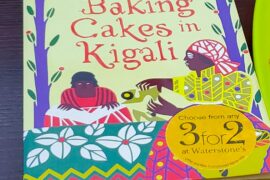
1 Comment
Your review is so on point. I felt for those unfortunate children who are left to face and survive life all by themselves.